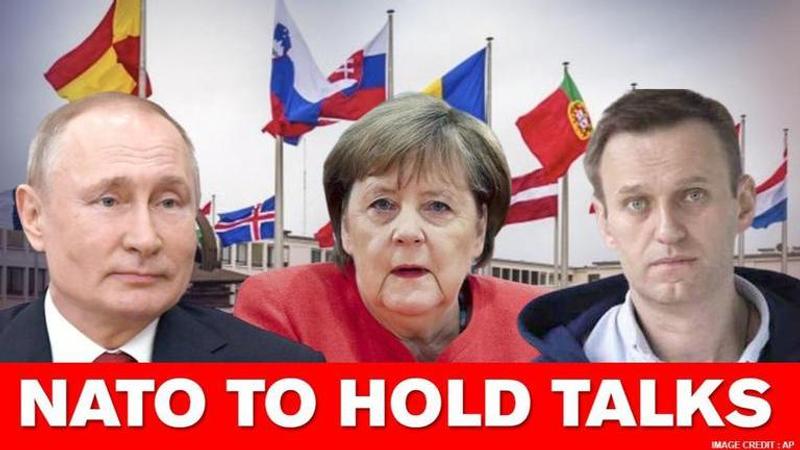Published 16:20 IST, September 4th 2020
NATO to convene special meeting on 'intentional poisoning' of Navalny
NATO Chief Jens Stoltenberg will preside the meeting in consultation with Germany and is scheduled to speak at a press conference later.

After German Chancellor Angela Merkel warned that the EU risks becoming “irrelevant” if it did not act against Russia over Navalny’s poisoning, the ambassadors of the member states of NATO decided to convene a “special meeting” today, September 4, in Brussels. Officials called for "restrictive measures" against Russia for the suspected poisoning of Russian opposition leader Alexei Navalny. NATO Chief Jens Stoltenberg will preside the meeting and is scheduled to speak at a press conference later. He said that he would consult Germany and all NATO Allies on the implications.
EU foreign affairs chief Josep Borrell condemned Russia and called for sanctions. He demanded a joint international response that reserves the right to take appropriate actions, including through restrictive measures. He said in a press release, "The use of chemical weapons is completely unacceptable under any circumstances, constitutes a serious breach of international law and international human rights standards.” Further, the European Union officials called on Russia for an independent international probe and urged to cooperate with the Organization for the Prohibition of Chemical Weapons (OPCW).
"The OPCW continues to monitor the situation and stands ready to engage with and to assist any States Parties that may request its assistance,” OPCW Director-General Fernando Arias said in a statement.
Additionally, a senior German politician also called for a "European response" after Chancellor Merkel found an "unequivocal evidence” of the nerve agent novichok use for poisoning. Head of Germany's parliamentary foreign affairs committee, Norbert Roettgen, said in a statement that it was now necessary to "pursue hard politics” and respond with “language Putin [President] understands”, adding, “Gas sales”. Further, in an on-air interview with Germany’s Deutschlandfunk radio, a member of Chancellor Angela Merkel's Christian Democratic Union said that Nord Stream 2 gas pipeline, from Russia to Germany, must be “stalled”.
German military lab identified Novichok
Earlier, Kremlin spokesman Dmitry Peskov rubbished the reports that Russia responsible for poisoning the political rival Alexei Navalny. In an address to the press, Peskov denied allegations of “intentional poisoning” of Navalny by Russian authorities and accused Russian doctors and pro-Kremlin media of the fabrication of the narrative. Kremlin also accused Berlin of failing to share “solid evidence”. Germany’s Chancellor in a presser had announced, that a German military lab identified and confirmed that the poison in Navalny's system is a variant of Novichok, a Soviet-era nerve agent. Meanwhile, the EU’s foreign policy chief Josep Borrell asked Russia to cooperate with an international probe, asserting, that the doctors found "cholinesterase inhibitors" in Navalny’s system and the 27-nation bloc would not rule out sanctions.
Updated 16:19 IST, September 4th 2020






